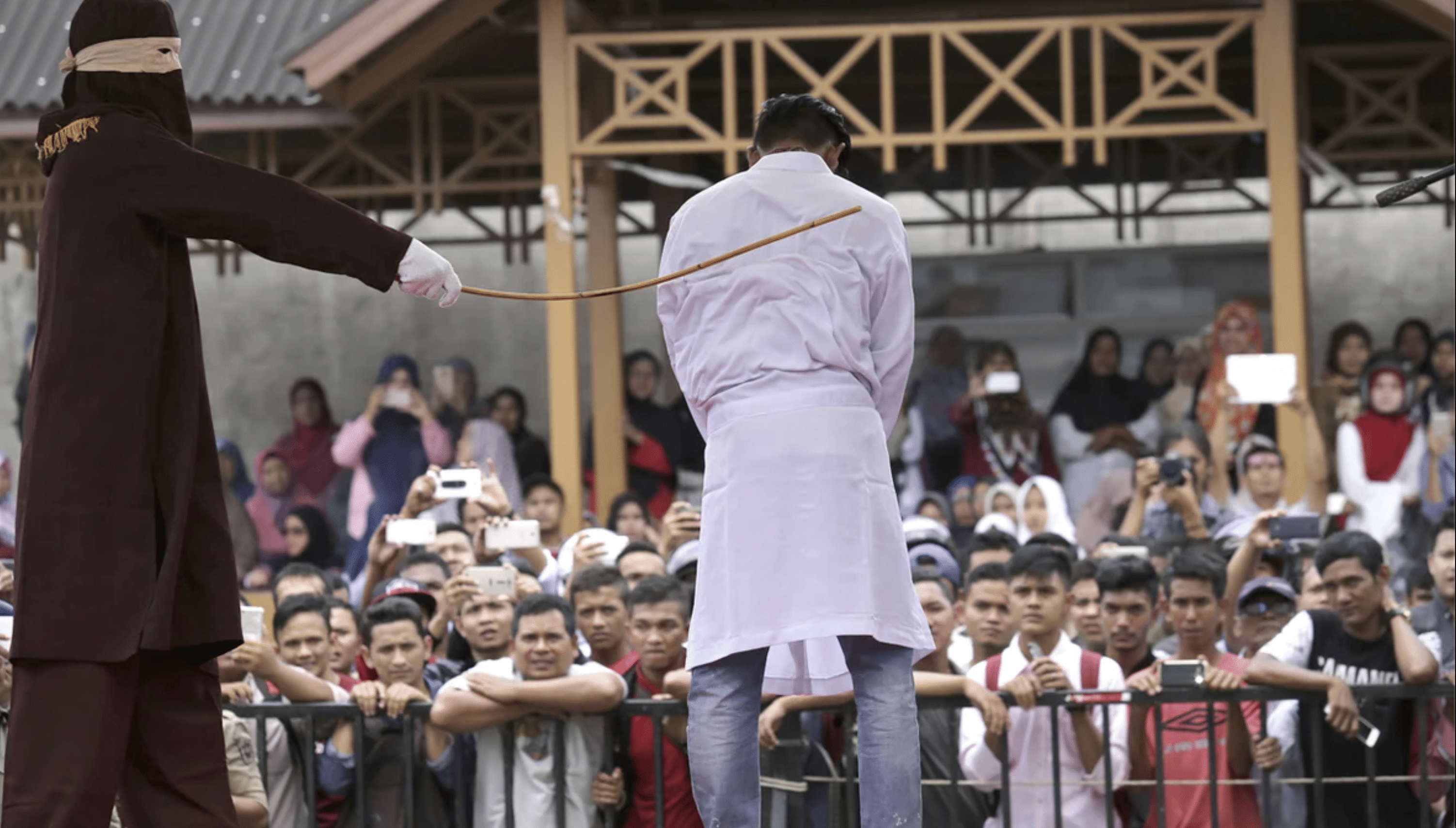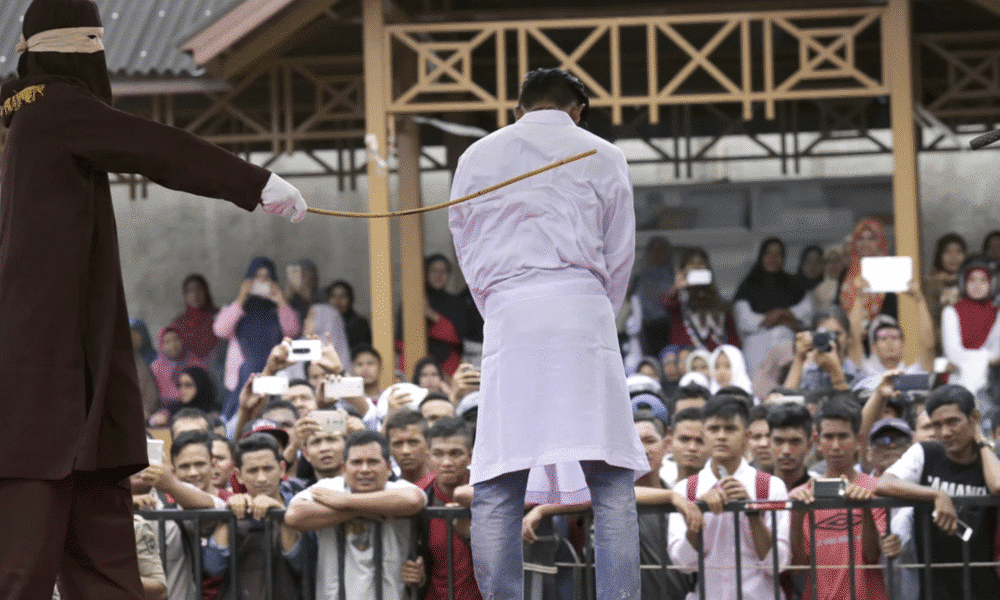News
Public Caning of Two Men in Indonesia for Hugging and Kissing Sparks Global Outcry
In a scene that has once again placed Indonesia’s Aceh province under international scrutiny, two men, aged 20 and 21, were publicly caned 80 times each after being convicted by a Shariah court of hugging and kissing. The punishment took place Tuesday in Bustanussalatin city park in Banda Aceh, before a crowd of around 100 people.
Both men were caned across their backs with a rattan cane by masked enforcers. The case stemmed from an April arrest, when local residents alerted Islamic religious police that the men had entered a park bathroom together. Authorities later claimed they found them “engaged in sexual acts” defined as hugging and kissing, which the court said could lead to prohibited sexual relations.
Eight other individuals were also caned the same day for adultery and gambling, underlining the wide scope of Aceh’s morality-based laws.
Aceh’s Shariah Law and History of Punishments
Aceh is the only Indonesian province permitted to enforce Shariah law, a concession granted in 2006 to quell a separatist insurgency. Since then, public canings have become a routine form of punishment for offenses ranging from gambling and alcohol consumption to same-sex relations.
While Indonesia’s national criminal code does not criminalize homosexuality, Aceh’s bylaws have criminalized same-sex intimacy since 2015. This week’s verdict marks the fifth case of caning for homosexuality under these laws.
Past punishments have included caning of men for same-sex activity and even proposals for stoning in adultery cases — though the latter were abandoned after pressure from the central government.
View this post on Instagram
Human Rights Groups Condemn the Punishment
The public caning has been condemned globally. Amnesty International called it a “disturbing act of state-sanctioned discrimination and cruelty,” with Regional Research Director Montse Ferrer stating:
“This punishment is a horrifying reminder of the institutionalized stigma and abuse faced by LGBTQ+ individuals in Aceh. Intimate relationships between consenting adults should never be criminalized.”
Indonesia’s own Institute for Criminal Justice Reform argued that the practice violates international conventions ratified by the country, which ban inhumane punishment. Despite these criticisms, some local residents expressed support. One attendee, Aulia Saputra, said the caning “creates a deterrent effect” against future violations of Shariah law.
Global Spotlight on Indonesia’s Human Rights
The latest incident presents Indonesia with a crossroads between its international human rights obligations and Aceh’s deeply conservative legal framework. While human rights groups continue to pressure Jakarta to intervene, the central government has historically avoided challenging Aceh’s autonomy.
For now, the sight of two young men publicly humiliated and beaten for a private act has reignited debates about freedom, morality, and the limits of state power in Southeast Asia’s largest democracy.




























































